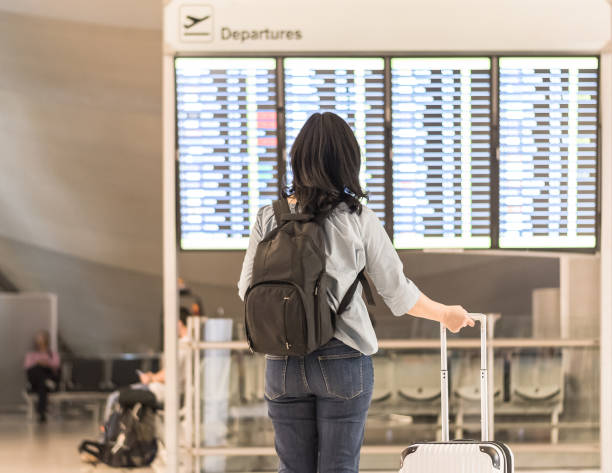THE 5 SAFEST CITIES IN THE WORLD, POST-PANDEMIC | FLIGHTLAYAWAY
In a post-pandemic reality, which cities are the safest in the world? The Economist Intelligence Unit recently published its 2021 Safe Cities Index, ranking 60 cities based on 76 safety indicators across infrastructure, digital life, personal security, environmental factors, and health – including pandemic preparedness and COVID-19 mortality metrics.
The cities that are placed at the top of the ranking are perfect demonstrations of how overall safety is directly linked to a strong sense of social cohesion, total population inclusion, and societal trust. Read on for details on the top 5 safest cities and what they did to make the cut.
The
5 Safest Cities in the World
1. Copenhagen
Ranking first in the index,
Denmark's capital city of Copenhagen performed well due to the newly introduced
environmental security pillar. This measures sustainability (including
renewable energy incentives), air quality, waste management, and urban forest
cover. Without a doubt, the latter had a strong impact on how well the city and
its residents could cope with COVID restrictions, although these were
completely lifted in September.
Copenhagen continues to
provide "Corona-guides" to assist people, in addition to extensive
signage and clear markings to delineate space between groups. Another plus is
Denmark's ranking as one of the world's least corrupt countries, enabling its
citizens to trust both its institutions and each other throughout the pandemic.
The city implemented a
massive COVID testing program. Testing is free for everyone, including
tourists; data gathered allows for detailed contact tracing and monitoring.
What's more, the capital plans to implement wastewater testing to catch
outbreaks before they become widespread.
2.
Toronto
Canada's largest city came
in second in overall safety, scoring highs marks in both infrastructure and
environmental security. Toronto residents highlight an inclusive approach that
prioritizes targeted communication across different communities, particularly
regarding COVID vaccinations.
Community-specific vaccine
rollouts help make the city a safer place. For instance, there were programs
for residents unable to leave their homes and task forces that came together to
push for vaccine equity among communities of color. The city's commitment to
multiculturalism and diversity contributes to making residents feel safe, seen,
and included. Different ethnic groups and cultural backgrounds come together,
interacting on a daily basis and fostering deeper connections.
3.
Singapore
Singapore ranks second in
digital security, health security, and infrastructure security, which helped
immensely during the early days of the pandemic. The city-state implemented
digital monitoring and contact tracing to survey and control outbreaks quickly.
Singapore also boasts one of the world's highest vaccination rates (currently
at 82%), but still requires strict monitoring and contact tracing in the face
of new variants.
To enter any building,
residents must scan a TraceTogether token or phone app to access SafeEntry
check-ins. Singapore government authorities track any individuals who might
have been in contact with infected people and apply a quarantine order to
contain or extinguish the transmission of a COVID-19 outbreak.
Public transportation is
less congested due to a shift in work-from-home policies. Local tourist
attractions and shopping malls have limited entrances, and "Safe
Distancing Ambassadors" monitor crowds to ensure the public complies with
health orders; individuals who break them face hefty fines. The public can also
track crowds at malls, post offices, and grocery stores with the new tool
called Space Out.
4. Sydney
Australia's largest city
scored fifth overall in the index, and in the top ten for health security.
Australia was one of the first countries to completely shut its borders during
the pandemic and has maintained strict lockdowns in the face of rising cases –
and it's working. As vaccinations reach 70% in New South Wales, many
restrictions are expected to lift and international borders are set to open in
November.
Sydney also ranked number
first in digital security, which includes a privacy policy and overall smart
city plan. For instance, the plan outlines how smart sensors could be placed in
trash bins, street lamps, and benches to collect information on overall usage,
transport flows, and pedestrian activity. Similarly, smart lighting and CCTV
networks could improve safety after dark.
5.
Tokyo
Japan's capital ranked fifth
in the overall index and at the very top of the health security index, which
measures factors like universal healthcare, pandemic preparedness, life
expectancy, mental health, and COVID-19 mortality. Although new cases surged
during the summer Olympics, rates fell dramatically as vaccinations have
reached nearly 60% of the population.
As a result, Japan announced
the end of the federal state of emergency and the gradual lifting of
restrictions at the close of September 2021. The country plans to encourage the
use of its vaccine passport for admittance to medical facilities and large
events, and even encourage businesses to offer discounts or coupons to passport
holders.
Tokyo also scored in the top
five for its infrastructure security, which includes transport safety,
pedestrian friendliness, and transportation networks. As a walkable city
connected by rail, Tokyo encourages walking and community engagement, which has
led to stronger citizen participation insecurity in the forms of neighborhood
crime prevention and watches, and a shared sense of responsibility for crime
prevention.
If you are looking to plan your trip in any of these cities then this is the time when you can get affordable tickets with installation options. Visit at: Flightlayaway.









Comments
Post a Comment